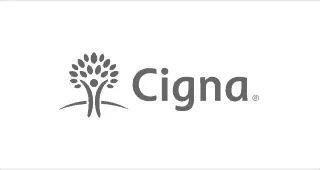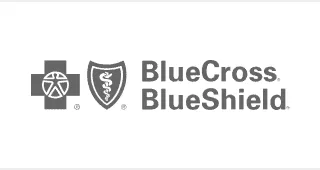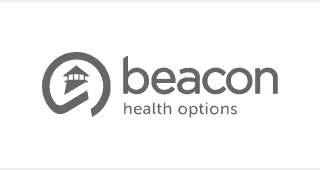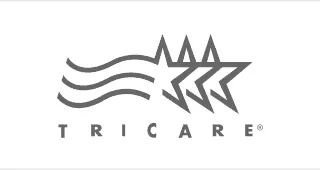What is an Addiction Intervention Exactly?
Chances are you may have seen an intervention depicted on television or in a movie before. You may have even seen some of the reality TV programs about addiction intervention. If so, then you have an idea of the basic concept. If not, don’t worry — we’re about to lay it all out for you.
An intervention is an organized attempt by friends, family, and loved ones of a person who is in crisis. The objective is to get the person who is struggling with drugs and/or a co-occurring mental health disorder to accept help before it is too late. In the case of addiction, the goal of an intervention is to get that person into substance abuse treatment as quickly as possible.
The Who, What, Where, When, How and Why of Intervention
How carefully an intervention is planned and executed and who participates or helps support the effort play a major role in how successful the intervention will be. It’s important to understand that an intervention for addiction is not something that’s done spontaneously or ‘off the cuff’. It’s much more than just a serious heart-to-heart conversation about addiction and its consequences. It’s more than trying to reinforce a set of rules or expressing disapproval.
Usually, by the time the loved ones of a person who is addicted arrive at an intervention, they have already tried all of those things and much, much more. Addiction intervention is usually the last stop on the train — but it doesn’t have to be. The truth is it’s never too early for an intervention if someone is clearly in crisis with a substance use disorder and refusing to accept help or change their behavior. In fact, those are literally the only requirements to warrant staging an intervention
Who is Involved in an Intervention?
Who is involved in an intervention will play an important part in how successful it is likely to be. The first thing you should know is that an intervention must have ONE person who is in charge. Medical professionals recommend choosing a professional interventionist whenever possible.
Professional interventionists are successful at bringing people into drug treatment (eventually) more than 85% of the time. Your chances of having a successful intervention without a trained professional’s guidance are somewhere between 30-50% depending on how you measure success.
If you cannot engage a trained interventionist, your next best option is someone who the subject of the interventionist trusts and respects. However, the interventionist should not be a family member or someone whom the person has any chance of manipulating emotionally. A person who performs an intervention must have confidence, a strong sense of self, and an understanding of the principles of recovery.
An interventionist, professional or otherwise, must:
- Be a confident person with a strong sense of self.
- Be willing and able to establish and maintain firm boundaries.
- Be resilient to attempts at emotional manipulation, gaslighting, etc.
- Have authority and respect and take responsibility for leading the intervention.
- Be empowered with a plan and the means to get the person into treatment ASAP
Where Should an Intervention be Staged?
The best place to stage an intervention is a place where the subject of the intervention is most likely to feel safe and comfortable. The person will likely feel defensive and anxious once the intervention is underway, so anything that can help make them a little more comfortable can be helpful here. People they love and trust. Even a favorite stuffed animal or blanket from childhood.
Ideally, you should be prepared to bring the person directly to addiction treatment ASAP following a successful intervention, you will be able to take the person to treatment right away. If you wait any more than 24-48 hours you run a serious risk of a failed intervention. Every hour that passes from when your loved one accepts the offer of help moves them closer to getting cold feet. So, if you can choose a place that will be easy to depart from or which is close to the airport if they need to fly, then do it.
When is the Best Time to Stage an Intervention?
The best time to stage an intervention is as soon as you are ready and have all the pieces in place. It’s never too soon for intervention — as long as you are ready. You should try to have addiction treatment already arranged at a program of your choosing that works with your insurance, and plane tickets purchased if possible.
You want to make it as easy as possible for the person to leave to get help the moment they say “yes”. If you’re scheduling travel or admission, consider that when you plan the time for the intervention. If your loved one can admit to addiction treatment the same day, that’s your best-case scenario.
Why Should You Stage an Intervention?
The reasons why you should stage an addiction intervention for your loved one are pretty simple. If the one you love is in crisis with a substance use disorder and has refused multiple offers of help or assistance in getting sober — then an intervention should be on the table. Look at it this way: You are highly unlikely to regret staging an intervention — but you just might regret not staging one.
Substance Use Disorder Help for Veterans
If your loved one is a veteran and does not have private health insurance, the VA offers assistance in finding treatment and support for substance use disorders. If an adequate VA program isn’t available, the VA may pay for private rehab — ask about “Community Care” when you contact them.
Achieve Wellness & Recovery: Solutions for Addiction
Addiction interventions are rarely easy, but they are well worth the effort. If you are uncertain about where you begin or you are planning an intervention and want to discuss treatment options — we’re here to help.
If you or someone you love is facing a struggle with addiction or mental health — we have solutions. Achieve Wellness and Recovery is devoted to providing a safe place where people can heal and recover from substance use disorders and learn to live drug-free one day at a time.
Give Achieve Wellness and Recovery a call at (833) 680-0142
You can also click here to find out how our program can work with your insurance.
We work with most insurance companies. Please note we are not affiliated with or endorsed by insurance companies.
No Medicaid Accepted.


















